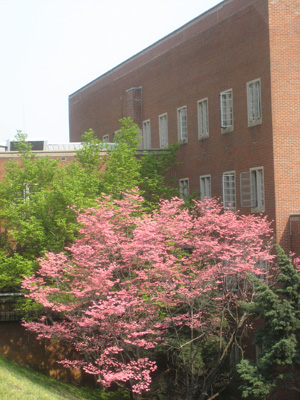
Nathan Washington Dougherty
Nathan W. Dougherty, engineer, educator, and athlete, was born on March 23, 1886, at Hales Mill, Virginia, the son of Samuel and Mary Ellen Vernon Dougherty. When he was twelve years old, young Dougherty and his family moved to Knox County, where his father operated a nursery and farm near Powell. Dougherty graduated from Powell High School and in 1905 entered the University of Tennessee, where he majored in civil engineering. A natural athlete, Dougherty played on the UT football, basketball, and varsity track teams and captained all three teams in 1909.
After graduation from UT in 1909, Dougherty worked briefly as a math teacher at Knoxville High School before accepting a position as an engineering instructor at Cornell University in Ithaca, New York, where he also enrolled for graduate study. He graduated in 1914 with both bachelor’s and master’s degrees in civil engineering.
In 1916 Dougherty received a position at the University of Tennessee. For the next forty years he taught at the university, rising to become dean of the College of Engineering (1940-56). Dougherty championed academic freedom in defiance of the university president and without faculty support when he wrote to Governor Austin Peay in 1925 to protest the Butler Bill outlawing the teaching of evolution.
Dougherty made numerous contributions to civil engineering. In the 1920s he advocated a statewide survey to coordinate planning of Tennessee highways, a program adopted by the state in 1936. He supported the Good Roads Movement and was instrumental in the development of the UT Engineering Experiment Stations. Dougherty served as vice-president of the American Society of Civil Engineers (1944-45) and president of the American Society for Engineering Education (1954-55). In 1958 he received the annual outstanding engineering award of the National Society of Professional Engineers for his lifetime achievements, especially his championing of engineering ethics and professionalism.
Dougherty’s reputation for ethics made itself felt regionally and nationally in athletics, too. Always interested in student athletics, Dougherty became faculty chairman of the UT Athletic Council the year he arrived and retained that position for the next thirty-nine years. Under his guidance Robert R. Neyland came to UT as football coach, and Dougherty designed Shields-Watkins Field and the football stadium. In 1920 he became the first secretary of the Southern Athletic Conference and played a key role in its reorganization into the Southeastern Conference in 1933. He also became active in the National Collegiate Athletic Association and served on its executive committee from 1948 to 1950. As in other areas, Dougherty did not always take the popular view. He opposed the granting of athletic scholarships and the attendant high-pressure recruitment. Fearful of the professionalization of student athletics, Dougherty reminded coaches and universities that their first objective should be education. In 1967 Dougherty was inducted into the National Football Hall of Fame. Three years later he was inducted into the Tennessee Sports Hall of Fame and posthumously into the Knoxville Sports Hall of Fame in 1982.
Dougherty retired from the university in 1956 but continued to act as a consultant to Arnold Engineering Development Center until 1966. In 1964 UT dedicated the Dougherty Engineering Building on the Knoxville campus. Dougherty was married to the former Agnes Anna Montieth, and they had five children. He died in Knoxville in 1977.



